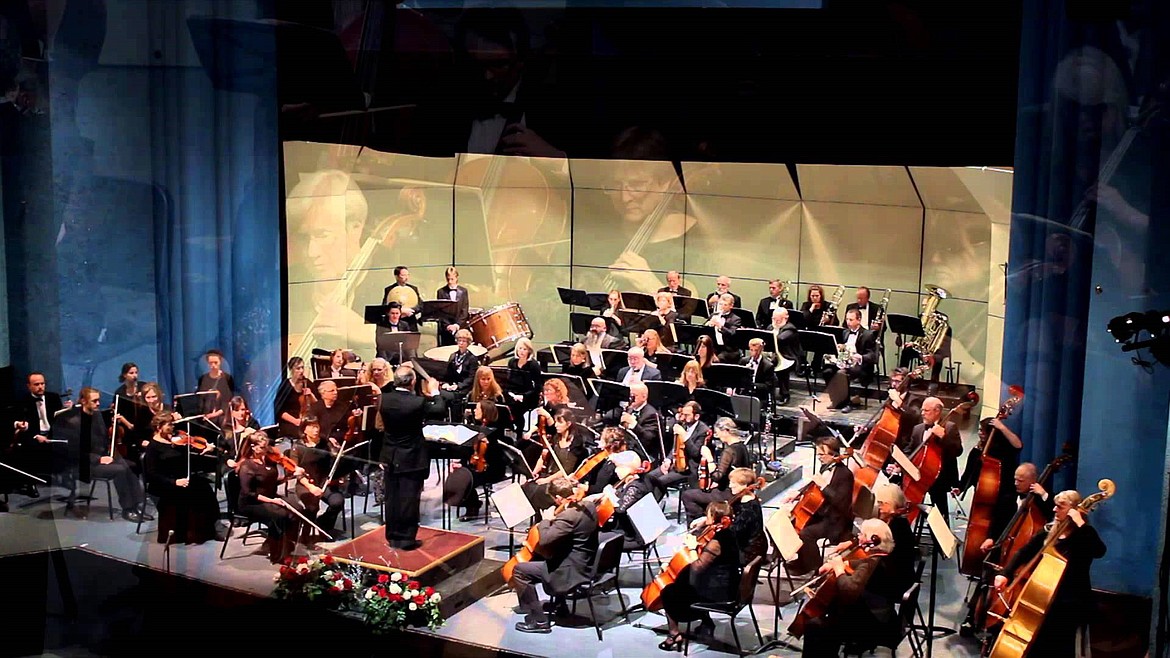MasterWorks Concert 'Anthem' has Romantic theme
Daily Inter-Lake | UPDATED 5 years, 10 months AGO
Titled “Anthem,” MasterWorks 4 features two works evoking the great and heroic spirit of Romanticism — Tchaikovsky’s iconic Piano Concerto No. 1 in Bb minor and Sibelius’ magnificent Symphony No. 2 in D major.
“One could make the connection that the Tchaikovsky Piano Concerto’s huge and Romantic opening theme introduced by the French horns is an iconic style anthem for Tchaikovsky, as it was an early ground-breaking work establishing his musical signature,” Zoltek explained, “The concluding grand theme of the final movement of the Sibelius 2nd Symphony could also be heard as a musical interpretation of an anthem of triumph for the Finnish people and potentially for aspirations of humanity in general.”
Written in 1874, Tchaikovsky’s First Piano Concerto was premiered in the United States by the virtuoso German pianist Hans von Bülow in Boston on Oct. 25, 1875. Since then it has become one of the most beloved concertos in the piano repertoire. Even those who have never heard the entire piece will most likely instantly recognize its opening. This theme became the pop song “Tonight We Love” in 1941. Tchaikovsky maintained its inspiration was a tune he heard sung by a blind man begging at a street fair. One of the more memorable and iconic moments in the whole of classical music is the introductory horn motives and power piano chords. These explosively-scored motives set the stage for the emotional intensity of the entire concerto.
It seems this concerto was destined to have ties to America. A young Texan named Van Cliburn won the first International Tchaikovsky Piano Competition in Moscow in 1958 during the height of the Cold War with his performance of the piece. The Glacier Symphony brings to Montana a compelling post-Cliburn interpreter — guest soloist for this towering piano concerto is Uzbekistan-born Israeli pianist Roman Rabinovich, praised by the New York Times for his “uncommon sensitivity and feeling” and the winner of the 2008 12th Arthur Rubinstein International Piano Master Competition in Tel Aviv.
The concert concludes with another favorite piece of the Romantic repertoire by the great Finnish composer Jean Sibelius. His Symphony No. 2 in D major was composed in 1902 shortly after the tremendous success of his Finnish nationalist tone poem, “Finlandia.” This was a time of increasing Russian oppression of the Finnish people and as an act of defiance perhaps, the Finnish government gave an English company $15,000 to record the first two symphonies of Sibelius, bringing the composer instant international fame.
Sibelius had an intense love of the geography and folklore of Finland, both of which are evident in his popular Second Symphony. Its opening measures suggest not only native folk music, but the flow of the streams and water around the fjords. Its movements are organically woven together by small motivic cells, which form the basis of, and are transformed into, the themes of the symphony. As to the work’s meaning, there has been speculation. Sibelius thought of it as “a struggle between death and salvation” and “a confession of the soul.” Others have attributed each movement as the depiction of the Finns under Swedish rule and Russian tyranny, finally emerging in hope and triumph in its thrilling closing movement.
Zoltek describes his attraction to this symphony and other works of Sibelius, “In my own pantheon of favorites, Jean Sibelius stands as one of the most intriguing and evocative of them all. His unique symphonic language blends a deep Late-Romantic sensibility with a uniquely personal abstraction of form resulting in a powerfully mesmerizing and perhaps mystical listening experience.”
The Glacier Symphony Orchestra and Chorale is now in its 37th season of bringing outstanding classical music concerts and educational outreach to the various communities in the Flathead Valley. This season marks music director and conductor John Zoltek’s 23rd year in that post. A native of Rhode Island, he holds degrees from the renowned Berklee College of Music and the University of British Columbia. His conducting studies and experience leading orchestras has taken him all over the world. Although Zoltek has immersed himself in the symphonic music world and his work with the Glacier Symphony, his well-respected musical background includes both jazz (guitar) and composition.



